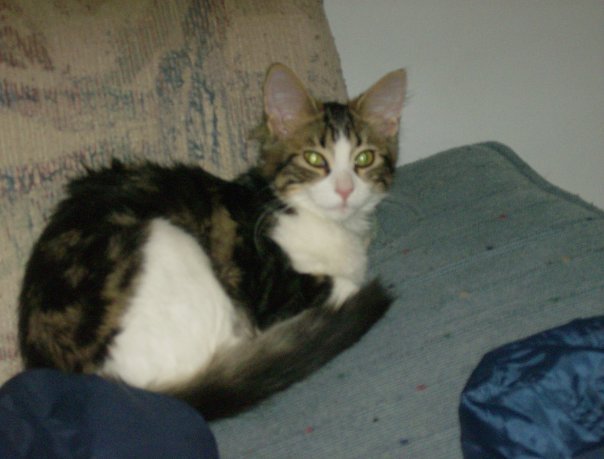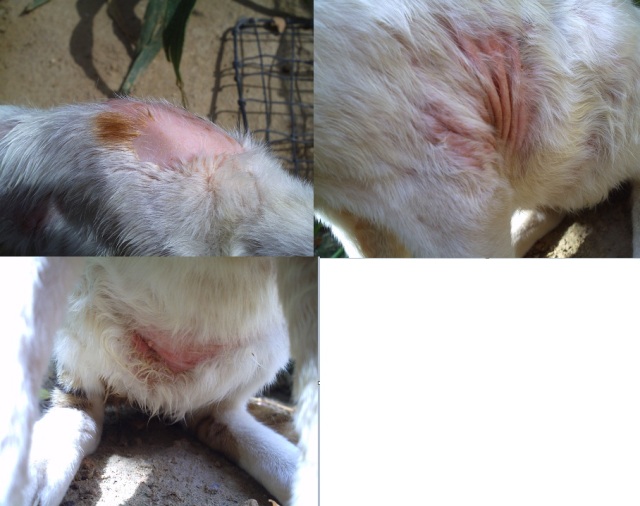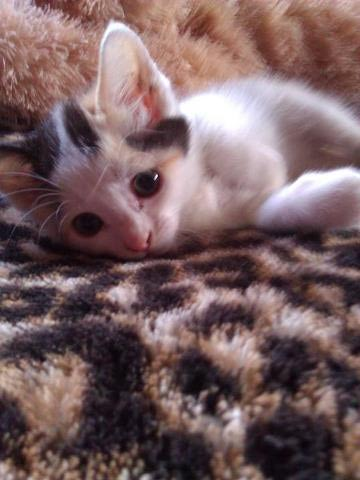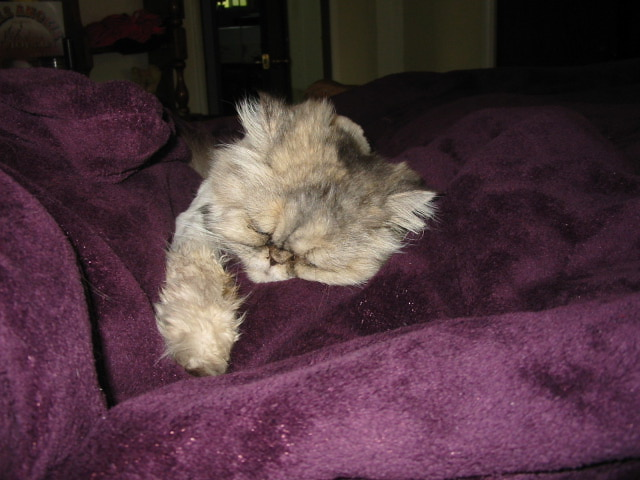QuestionHello, I read your response about using frontline on kittens, however, my vet told me that I am unable to use it on the mama cat and her 5 day old kittens. My other cat just got spayed and I used it on her and am currently keeping her away from the kittens and other cat. I also was given 24 hour oral pills that i was able to give to both cats to kill the flees temporarily. These kittens are very small bc there mom is only 11 months old. The mom and other cat have had one heart worm medication and I am following up with the 2nd dose on thursday. I'm wondering when you think the kittens will be able to use frontline along with their mother. Also I'm wondering what you recommend for ridding the house of flees and eggs and when I will be able to be sure they are totally off the cats/kittens. Also concerning me is when I will be able to treat the kittens for worms and how likely it is for them to become anemic. Sorry this is so many questions but also when will it be safe to get the mom spayed?Thank you so much for your time it is greatly appreciated.
concerned,
Shelby
AnswerNo problem, Shelby. I'm here to help!
Let's see...
Q. I'm wondering when you think the kittens will be able to use frontline along with their mother.
A. Technically, Frontline shouldn't be used on kittens younger than 8 weeks. It IS, however, approved for mothers nursing kittens of any age, so I'm not sure why the vet doesn't recommend to apply it to mom now.
To be completely honest, in my line of work (working with wild/stray cats), we see lots of kitten deaths due to flea-induced anemia. We think nothing of putting 2 drops of Frontline on kittens just days old BECAUSE the benefits outweigh the risks. No one in my rescue org has had a negative reaction yet. This definitely goes against package directions. Therefore, it would be risky for a vet to recommend it (though the vets I work closely with have done so with me). I'm no vet, and I don't work for Frontline, so I can't make a recommendation to you. However, if the kittens are full of fleas, were these my own kittens, I would use 2 drops of Frontline on the back of their necks now. That decision is yours.
If you decide not to use Frontline on the kittens right now, break out the flea comb. Dip the comb in rubbing alcohol between strokes to get rid of fleas, then in water, dry the comb, and go to the next stroke. You don't want wet kittens, as they chill easily. If they're really just crawling with fleas, a bath with Johnson's Baby Shampoo may be necessary to get rid of most of the fleas, but you'll need to make sure you dry the kittens off very well, and then make sure they nuzzle mama.
Q. Also I'm wondering what you recommend for ridding the house of flees and eggs and when I will be able to be sure they are totally off the cats/kittens.
A. Ideally, start with Borax (the powdered cleaner). This dehydrates and kills all life stages of the flea, from egg to adult. And it's non-toxic. Rub it into all carpeting and furniture, where fleas lay their eggs and where immature fleas graze. Allow it to sit for two hours (don't allow the cats to walk on it), and then vacuum it up. Hard flooring should be washed with bleach, and all bedding should be washed in hot water.
If you end up with fleas again, you're probably missing some cracks and crevices, and you may end up having to go with a flea fogger or "bomb". These will require you and the kitties to leave the house for several hours. You can find them at pet stores or home and garden centers.
Q. Also concerning me is when I will be able to treat the kittens for worms and how likely it is for them to become anemic.
A. Treatment with pyrantel pamoate (Nemex or Strongid) is very safe, and most vets will treat kittens at just a few weeks old. This medication will kill roundworms and hookworms.
Roundworms are mainly a threat because they cause diarrhea leading to malnutrition and dehydration. Hookworms, which fortunately are less common, are a huge threat to cats, especially kittens, because they feed on blood and cause anemia in addition to causing diarrhea and malnourishment. If you notice bloody or pinkish white stools, you need to notify the vet right away, as this is a sign of hookworm infestation. Immediate treatment might be recommended, because anemia in kittens is extremely likely.
Please DO NOT use piperazine citrate or dipiperazine sulfate products sold at pet stores. They are unsafe for kittens and have been known to cause deaths.
Treatment for tapeworms, in my experience, is generally pushed off until the kittens weigh 2 pounds. That's because tapeworms are not much of a threat to the kitten's health. They're more of a disgusting nuisance to us. And the medication used to kill these worms, praziquantel, can be overdosed in tiny kittens. So follow directions from your vet on this one carefully. I would recommend requesting a follow-up dose to repeat after two weeks. Sometimes one dose doesn't cut it.
Q. When will it be safe to get the mom spayed?
A. As soon as she is no longer lactating. Lactation causes dilated blood vessels in the abdominal area and an increased bleeding risk during a spay surgery. Mothers will generally be dried up between 10 and 21 days after nursing has stopped completely. You'll probably want the vet to confirm she's no longer lactating before making her spay appointment.

 cat disappeared
Question
pusscat at home
My cat came to me at 6 months
cat disappeared
Question
pusscat at home
My cat came to me at 6 months
 pregnat cat ??
Questionsophia
QUESTION: no one is avaible for t
pregnat cat ??
Questionsophia
QUESTION: no one is avaible for t
 wounded cat hair loss
Question
wounded cat
my one year old cat was bitten by
wounded cat hair loss
Question
wounded cat
my one year old cat was bitten by
 Stray kitten
Question
My Kitten
Hi i was wondering how much t
Stray kitten
Question
My Kitten
Hi i was wondering how much t
 stuffy nose on my persian
QuestionTiffany
QUESTION: My cat Tiffany is 12 y
stuffy nose on my persian
QuestionTiffany
QUESTION: My cat Tiffany is 12 y